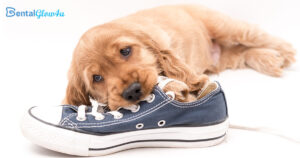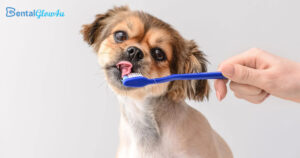Essential Guide: When Do Puppies Lose Their Milk Teeth?
Welcome to the whimsical world of puppyhood, where every day is an adventure filled with wagging tails, floppy ears, and the inevitable teething phase! If you’ve recently welcomed a furry bundle of joy into your home, you might be asking yourself: when do puppies lose their milk teeth? Well, grab your favorite chew toy and settle in because we’re about to embark on a delightful journey through the puppy teething timeline!
The Baby Teeth Bonanza

Puppies are born toothless, but don’t let that fool you! By the time they’re about two weeks old, those tiny incisors begin to peek through the gums like little white pearls. By eight weeks, your pup will have a full set of 28 milk teeth, ready to take on the world—one chew at a time! These baby teeth are crucial for your puppy as they learn how to munch on soft puppy food and explore their surroundings.
The Great Tooth Transition
Fast forward to around three to four months old, and your adorable pup is about to experience a significant change. This is when the real fun begins: when do puppies lose their milk teeth? Typically, puppies start losing their milk teeth around three and a half to four months. You might notice some tiny teeth lying around your house—don’t panic! It’s completely normal. It’s like finding little treasures scattered throughout your living room.
What Teeth Go First?
So, which teeth are first on the chopping block? The milk incisors are usually the first to go, making their exit between two to five months. Next up are the canines, which tend to drop out around five to six months. Finally, the premolars follow suit between four and six months. By the time your pup hits that six-month milestone, they should have lost all their milk teeth and be well on their way to sporting a shiny new set of adult teeth—42 of them, to be exact!
The Chewing Chronicles

As your puppy navigates this toothy transition, you may notice some changes in behavior. Chewing becomes a full-time job during this period! Your once-adorable furball might start gnawing on everything in sight—from shoes and furniture to that expensive dog bed you just bought. It’s as if they’ve decided that everything is fair game in their quest for relief from sore gums. To help ease this discomfort, provide plenty of puppy-safe chew toys. Rubber toys or frozen washcloths can work wonders for those aching gums. Just imagine your puppy happily chewing away while you sit back and enjoy the show—it’s like having front-row seats to a comedy act!
Signs of Teething Trouble
While losing milk teeth is a natural process, it can sometimes lead to discomfort for your pup. Keep an eye out for signs that your furry friend might be struggling with teething pain. Excessive drooling, nipping at your fingers (yikes!), or even mild bleeding from the gums can occur during this phase. If you notice any severe symptoms—like a loss of appetite or lethargy—it’s best to consult your veterinarian.
The Mystery of Missing Teeth
You might be wondering: where do all those milk teeth go? Some puppies swallow their teeth during playtime or while chewing on toys. Others may leave them behind as little mementos for you to discover later. So if you find a tiny tooth under the couch or in your shoe, consider it a badge of honor in your puppy’s journey toward adulthood!
Puppy Dental Care

As your puppy transitions from milk teeth to adult ones, it’s essential to keep an eye on their dental health. Regular vet check-ups will ensure that all those shiny new teeth are coming in correctly and without any issues. If any milk teeth linger past six months, it’s crucial to have them checked out by a professional. The teething phase is just one of many milestones in your puppy’s life—a rite of passage that leads them toward becoming a strong and healthy adult dog. So embrace this chaotic yet adorable time filled with tiny teeth and endless chewing adventures! After all, every lost tooth brings you one step closer to that charming adult smile that will melt hearts everywhere!
Additional Tips on When Do Puppies Lose Their Milk Teeth
To further help with understanding when do puppies lose their milk teeth, consider these additional tips:
- Provide Soft Foods: During this transition period when puppies are losing their milk teeth, offering soft foods can make eating more comfortable.
- Regular Dental Check-ups: Schedule regular veterinary visits during this teething phase so that any potential dental issues can be addressed promptly.
- Monitor Chewing Habits: Keep an eye on what items your puppy chooses to chew on; redirect them towards appropriate toys if needed.
By staying informed about when do puppies lose their milk teeth and how it affects their behavior and health, you’ll ensure that both you and your furry friend enjoy this exciting stage of life together!
Summary
In summary, knowing when do puppies lose their milk teeth is essential for every pet owner. Understanding this process helps you provide better care for your puppy during this critical phase of growth and development. Embrace the journey as you watch those adorable baby teeth make way for strong adult teeth!
